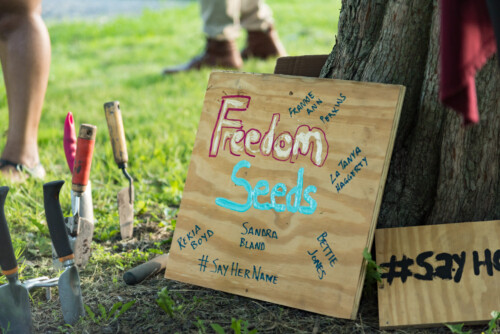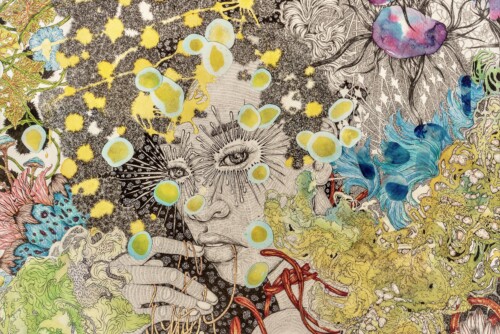I am currently engaged in a research project on the political economy and socio-legal regulation of bingo (in the U.K., Canada, Brazil, Europe, and online). I am interested in particular in trying to think about the feminist political economy of gambling liberalization: bingo is my preferred route in to this topic. Using this research I hope to add a few themes to the conversation about gender, justice, and neoliberalism.
1. Gambling, risk regulation, and neoliberalism: how is this connection lived?
Many analysts of neoliberalism have written about gambling, looking at the turn to gambling by governments to raise money for social services without raising taxes (usually through lotteries), and in an attempt to revitalize impoverished areas by using gambling as a tourist draw (usually through casinos). 1 Scholars have also examined what gambling liberalization can reveal about law, political economy, risk management, and cultures of “responsible” speculation. There has also been a considerable amount of popular commentary on “casino capitalism” (including by David Cameron and Barack Obama) in the context of the 2008 financial crisis. 2 However, none of this material has examined charitable gambling in depth (bingos, raffles, break-open tickets), despite the fact that in many jurisdictions—including the United States—it is the “most widespread form of legalized gambling.” 3 There is a scholarly tendency to focus on neoliberalism through its own “James Bond,” testosterone-saturated discourses of roulette and high-rolling, corporate risk-takers. Casinos hog the limelight, and are positioned as the globally salient form of gambling in neoliberal times—even though in the U.K., bingo halls outnumber casinos four to one, and employ more people; and even though in Alabama bingo, not casinos, dominated the 2010 governor’s race. 4
In an attempt to learn J.K. Gibson-Graham’s lesson—that our critiques of capitalism should not (re)produce the narratives that capitalism’s beneficiaries present as the only available reality 5 —I take the lead from scholars looking at more mundane expressions of political economy. These include people who focus on “crap towns” rather than global metropoles; 6 those who look at everyday manifestations of long-lasting economic turmoil, rather than stock-market crashes, as definitive moments of neoliberal crisis; 7 or those who look at the political economy of spaces of vernacular creativity, such as gnome collections, 8 rather than well-studied, gentrification-through-art efforts in major cities. Currently, I am interested in municipal inspectors and what Valverde calls the “the lowly legal mechanism of licensing” as a route into understanding gambling regulation. 9 It is not that these spaces are more authentic than the more commonly studied manifestations of political economy, but I get a different sense from them about how neoliberalism and its crises are lived—full of the unspectacular, self-effacing commonplace.
The complex interrelations between governance scales that result from attention to the question—“how is neoliberalism lived?”—are very pertinent in this regard. In the bingo project I am exploring how local, national, and transnational gambling regulation interrelates. The research centers on the relationship between political economy and rescaling of political authority (e.g., the turn to localized, charitable gambling as a response to cuts in social programs; and the attempt by some companies to use transnational law to forcibly open restricted national gambling markets.) Methodologically, I am not sure how to best study these links (and breaks) between levels of governance—but I think that attention to this issue is a crucial part of understanding how contemporary neoliberalism works.
2. Beyond charity
A second theme that bingo might to add to the conversation about gender, justice, and neoliberalism relates to feminist politics and critique regarding the relationship of voluntarism, charity, and community, to new models of social provisioning. Bingo is the paradigmatic site of charitable gaming, and, as such, it leads us to literature and activism that critiques charity-state-business relations. 10 We know that the attempt to stimulate a resurgence of voluntarism can often involve a dumping of state responsibilities onto under-resourced entities at the provincial/state, municipal, local, or community level. The responsibilities being passed down are often cast off on women as volunteers, and the services chosen for rescaling are typically those associated with care work. The valorization of the family and the local (sometimes as a result of transnational pressures), and the gendered, political-economic effects of this valorization are central themes of the feminist scholarship on neoliberalism that I have found particularly useful. When this work is put alongside critical research on the transnational promotion of charities as a way to (mis)manage the effects of the systemic inequality produced by current arrangements of political economy, one can generate a gendered critique of charity that is attentive to multiple levels of analysis.
North American bingo is, frankly, a beautiful route in to this set of relations. In particular, the limited debates that exist about bingo regulation (in law, policy, and academic research) tend to focus on charities as the lowest relevant set of stakeholders, and to suggest revitalization efforts that privilege their interests. Hence, some Canadian researchers (and charities) have celebrated when judges have upheld the ability of charities to conduct and manage bingo for their own fundraising purposes, rather than having to rely on grants from gambling conducted by provinces; this case law has been seen as a victory for community over state control of gambling resources. However, attention to bingo—and especially to the way that charities treat employees, players, and volunteers—leads to a more critical analysis of the charity role in gambling. Political and affective investment in localized community projects (read through charity) is certainly understandable as a reaction against the savage effects of what Gilmore terms abandonment by the state, 11 but in bingo elderly, working-class players are often funding recreational services for middle-class youth, and “volunteers” are being coerced (by charities) into working for free as a condition for receiving services. The type of community being (re)created, and the transfer of political and economic resources to already privileged people on which it depends, have left me very skeptical about both charity and community as sites for resistance. I am thus interested in how to move beyond charity—and community read through charity—in critiques of neoliberalism.
3. Gender, sexuality, and political economy
Finally, I hope that bingo might help us reflect on where sexuality is seen and not seen in our analyses of political economy, and on how the “winners” of current political economic arrangements relate to the “losers.”
“Traditional” bingo—inaccurately characterized almost everywhere as a dying gaming form—is an obviously gendered and sexualized site: women outnumber men by three to one (at least), and the game provides a rare commercial (or semi-commercial) space for older, working-class women to play. Games, in many halls, are also characterized by regular sexualized teasing and banter between callers (usually men) and players. Gay men—as callers and players—are well known to some hall managers as a constituency in bingo. Moreover, a popular side game to regular bingo in Canada is the balls tickets (a form of pull tab): players hold up brightly colored, laminated signs reading, “I want BALLS now!,” to attract the attention of vendors. As one bingo volunteer selling the various tickets said, (with a dirty laugh) “hot balls, slippery balls, blazing balls. I love all that.”
In apparent contrast, gay bingo is booming in many urban centers. This is part of a trend toward bingo games being staged as novelty, nostalgic entertainment. It can be more or less sexually explicit (in London, sex acts are performed on winning players by drag queens), but it is typically advertised as the exact opposite of traditional bingo. As one London advertisement for a gay bingo event put it: “this is certainly not your average night down the bingo hall with your chain smoking Nan.”
I am trying to think about gay bingo using literature on the political economy of alternative leisure space in terms of sexuality, class, and gender. I want to do this without contributing to still-prevalent leftist homophobia, transphobia, and erotophobia. 12 Those on the left who are “icky” about sexuality (as Svati Shah so perfectly put it) might love to hear how drag queens are destroying an honest, honorable working-class pastime, and they might also love to reconnect (again) sexual minorities to the gentrifying rich and decadent. 13 Because I am worried about this, I wish to highlight the sexually transgressive, flirtatious nature of “traditional” bingo. However, there are some interesting issues raised as bingo straddles an awkward line between being a resource on which to build alternative sexual community through nostalgic, ironic appeal; and as a signifier of communities in what we are told is terminal decline (in Canada, these include older women, First Nation and Native communities, and working-class people). Rather than invest analytically in urban gay bingo as distinct, I want to ask what sorts of sexualities are given space in “ordinary” bingo, and how we might connect the London drag queens to, for example, the rural Canadian bingo hall. To understand—and critique—the sense that “the market” is driving some leisure spaces (and the populations they serve) in to oblivion, it helps to keep them analytically connected to the leisure spaces and populations that are supposed to be thriving, to foreground the connection between the “winners” and the “losers” as an approach to analyzing gender, sexuality, and neoliberalism.
- See, for example: Colin Campbell and Garry Smith, “Canadian Gambling: Trends and Public Policy Issues,” Annals of the American Academy of Political and Science 556 (1998): 22-35; James Cosgrove and Thomas Klassen, Casino State: Legalized Gambling in Canada, (Toronto: U of Toronto P, 2009); Vincent Della Sala, “Les Jeux sont fait? The state and legalized gambling,” working paper, U of Trento School of International Studies, 2004; G. Reith, “Gambling and the contradictions of consumption: A genealogy of the ‘pathological’ subject,” American Behavioral Scientist, 51.1(2007): 33–55.[↑]
- For critical summary, see: Rebecca Cassidy, “Casino Capitalism and the Financial Crisis,” Anthropology Today 25.4 (2009).[↑]
- Drew Dolan and Jim Landers, “Gambling on an Alternative Revenue Source: The Impact of Riverboat Gambling on the Charitable Gambling Component of Nonprofit Finances,” Nonprofit Management and Leadership 17.1(2006): 6.[↑]
- Kate Bedford, “Getting the bingo hall back again? Gambling law reform, economic regeneration, and the gendered limits of ‘casino capitalism,’” Social and Legal Studies 20.3(2011): 369-388; J. Mark White, Kitty Rogers Brown, and Bevan Dowd, “Bingo in Alabama: More than Just a Game,” Cumberland Law Review 41(2010): 509-532.[↑]
- J.K. Gibson-Graham, The End of Capitalism (as We Knew It): A Feminist Critique of Political Economy, (Cambridge: Basil Blackwell, 1996).[↑]
- T. Edensor, D.Leslie, S.Millington, and N. Rantisi, eds., Spaces of Vernacular Creativity: Rethinking the Cultural Economy (London: Routledge, 2009).[↑]
- Olga Shevchenko, Crisis and the Everyday in Post-socialist Moscow. (Bloomington: Indiana UP, 2009).[↑]
- Potts, Tracey, “Creative Destruction and Critical Creativity: Recent Episodes in the Social Life of Gnomes,” Spaces of Vernacular Creativity: Rethinking the Cultural Economy, Tim Edensor et al., eds., (London: Routledge, 2009).[↑]
- Mariana Valverde, “Seeing Like a City: The Dialectic of Modern and Premodern Ways of Seeing in Urban Governance,” Law and Society Review 45.2(2011): 297.[↑]
- See: Neil Brooks, “The Role of the Voluntary Sector in a Modern Welfare State,” Between State and Market: Essays on Charities Law and Policy in Canada, Jim Phillips, Bruce Chapman, and David Stevens, eds., (Montreal: McGill-Queen’s UP, 2001) 166-216; Neil Brooks, “The Tax Credit for Charitable Contributions: Giving Credit where None is Due,” Between State and Market: Essays on Charities Law and Policy in Canada, Jim Phillips, Bruce Chapman, and David Stevens, eds., (Montreal: McGill-Queen’s UP, 2001) 457-481; INCITE! Women of Color against Violence, eds., The Revolution Will Not Be Funded: Beyond the Non-profit Industrial Complex, (Cambridge: South End, 2007); Jennifer Wolch, The Shadow State: Government and Voluntary Sector in Transition, (New York: Foundation Center,1990).[↑]
- Ruth Wilson Gilmore, Golden Gulag: Prisons, Surplus, Crisis, and Opposition in Globalizing California (Berkeley: U of California P, 2007).[↑]
- Jon Binnie, “Envisioning Economic and Sexual Justice Spatially,” Scholar & Feminist Online 7.3 (2009).[↑]
- Svati Shah, “Sexuality and ‘The Left’: Thoughts on Intersections and Visceral Others,” Scholar & Feminist Online 7.3 (2009).[↑]


